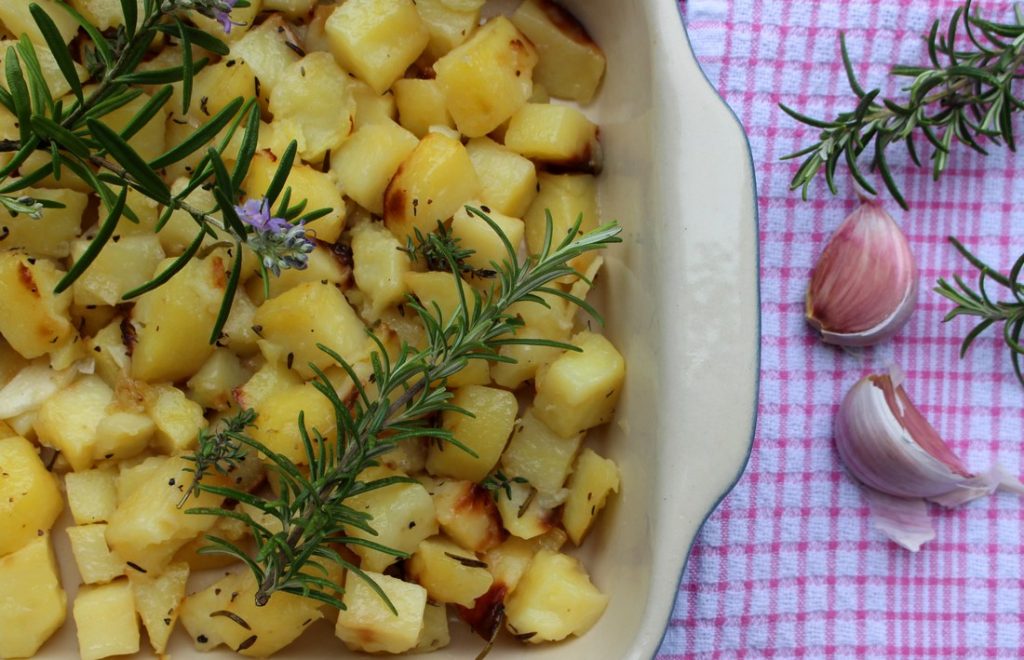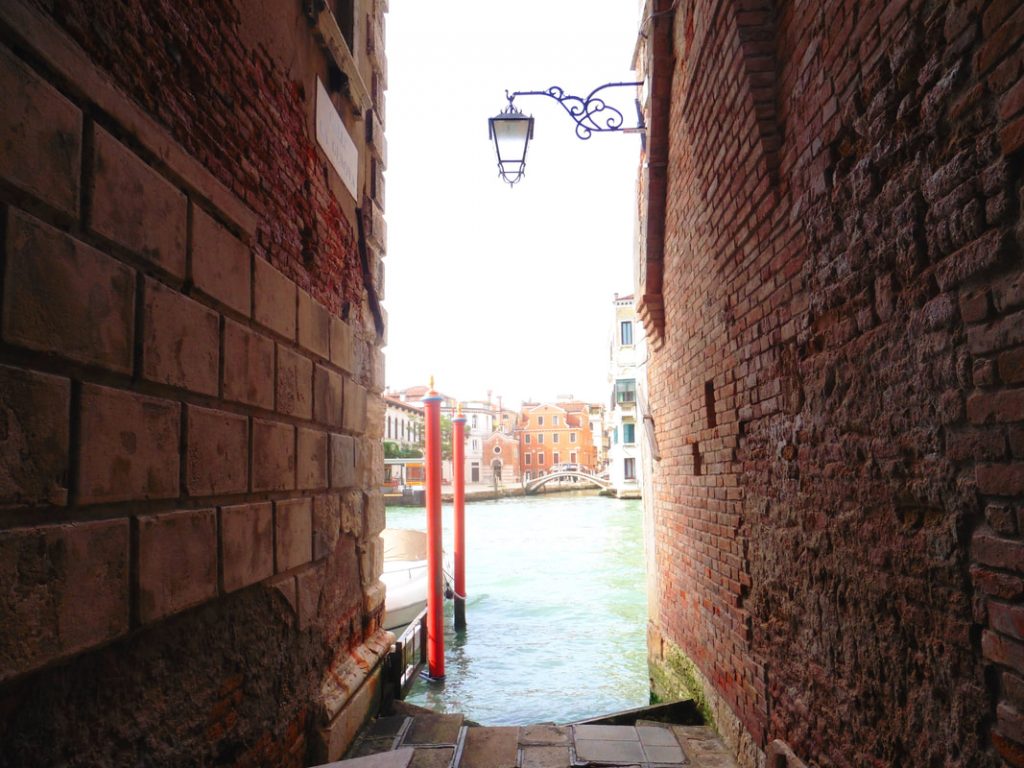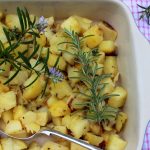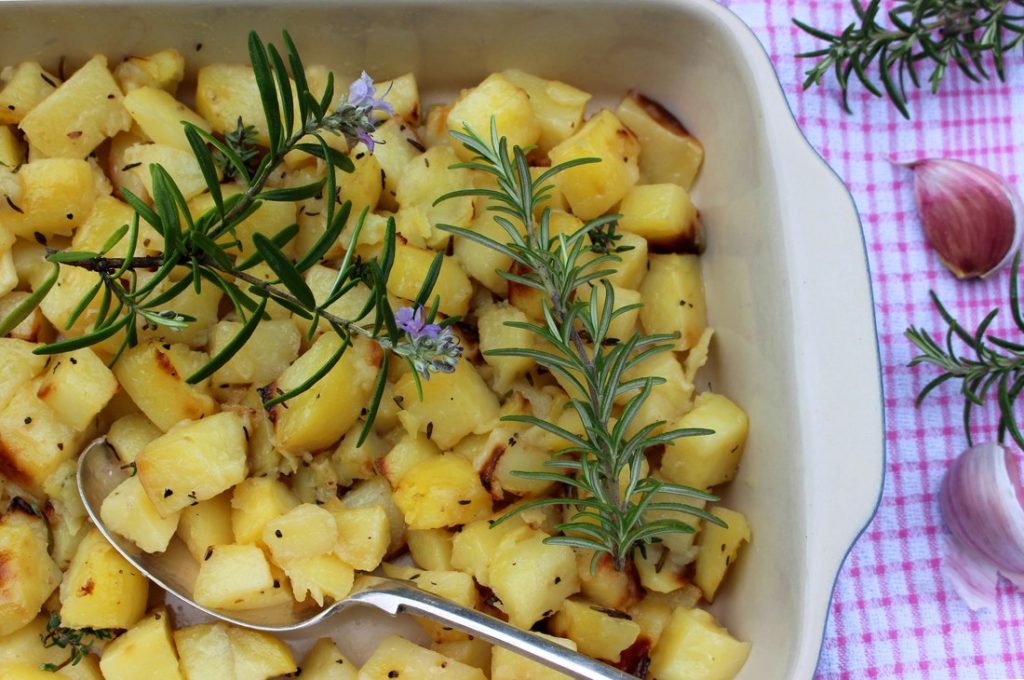patate di agnello in fuga,patate di agnello fuggito, patate di agnello vagante
Welcome back to Mrs Simkins and Miss Windsor’s Italian Escapades.
I had planned to bring you pasta carbonara
for my second recipe, based on the gorgeous one we had in that lovely
restaurant in Venice earlier this year (see intro). We were only there
for 3 days and I never got the chance to order my own but the forkfuls I
blatantly stole from my husband’s plate were absolutely wonderful.
Anyway,
as I was saying to Miss Windsor the other day, I shall have to put that
on hold as our hens, now sadly depleted from 5 to 4, have gone off lay
for a while and we are lucky if we get one or two eggs a day. A series
of family birthdays and other events has meant eggs have been whipped
away from under the hens for cakes almost as soon as they are laid.

When a dish is so dependent on the quality of the eggs, I wanted to hang on until our remaining girls perk up: we are also planning to buy a couple more hens any day now so we should be back in business soon. There’s nothing like new laid eggs from your own hens, once you’ve kept hens, it spoils you for shop bought ones.
I suggested to Miss Windsor I do one of my favourite Italian potato recipes instead. Ironically, I first heard of this dish not in Italy at all but from the comfort of my sofa one night last year whilst watching Coronation Street. Fellow fans will be familiar with long running and popular character, and self-styled man of culture, Ken Barlow.

Miss Windsor isn’t quite as dedicated to the Street as I am but has been known to watch the occasional episode and thought the recipe sounded good.
On this occasion, Ken was hosting one of his dinner parties for Audrey, Cathy and Brian. Brian remarked how good the potatoes were and everyone agreed. Apparently, Ken had got the recipe years before inside a Christmas card from a friend in Italy.
Unfortunately, a more recent recipe of his, goat’s cheese lasagne, met with a less enthusiastic reception from his guests, mature woman of the world, hairdresser (and long-standing rival of Audrey’s in more ways than one) Claudia, remarked it had an unusual taste and prospective daughter in law Sinead, newly pregnant was unable to eat a bite. Son Daniel picked his way through stoically.

I’m so pleased I was watching the Street that night: I researched the recipe the next day and now it’s a big favourite: it’s also very easy to make.
This traditional Italian way with potatoes came about because it gave the impression you were eating lamb even though you couldn’t afford the actual meat. It’s also known as runaway or escapedlamb.
The flavours of wine, garlic and rosemary are absorbed into the potatoes and give the distinct impression that there might be lamb involved. Fabulous served with crusty bread on its own, it also makes a great accompaniment to roast meat or fish.

Mrs Simkins Italian Rambling Lamb
Ingredients
- 800-900g potatoes, peeled and cubed
- 1-2cloves garlic, halved or quartered
- 3 tablespoons oil
- 1-2 large, dense sprigs rosemary
- 2-3 small sprigs thyme
- Sea salt flakes
- Coarsely ground black pepper
- 100 ml dry vermouth (or use 200ml of the more traditional white wine and leave out the water)
- 100 ml water
- Plus: extra rosemary, including flowers if available, to garnish
Instructions
-
Preheat oven to 180°C (fan oven) or equivalent
-
You will need an oven-proof dish
-
Toss potatoes and garlic in oil in the baking dish. Tuck in herbs and season with salt and pepper. Turn gently to coat and pour over wine or vermouth and water
-
Bake for up to an hour, turning a couple of times, until potatoes are golden, soft and sticky and have absorbed all the liquid
-
Discard spent herbs and garnish with fresh rosemary. Serve immediately
Cooking with Dry Vermouth
Wine adds a beautiful
flavour to dishes, there is no denying, but I must admit, I find it
hard to slosh a whole glassful into a recipe from a newly opened bottle,
always thinking: I wouldn’t have minded drinking that! I do
tend to save the ends of bottles and freeze them inside a sealed freezer
bag for cooking with, but usually when white wine is called for in
savoury recipes, I use dry vermouth.
I like it because as it’s
fortified and an opened bottle lasts for ages in a cool place. It’s
stronger than table wine so you need less and I love the beautiful herbs
and aromatics it’s infused with.
Originally thought of as
medicinal and drunk as a tonic, it became popular as an aperitif and
then as an essential part of several well-known cocktails: gin and vodka
martinis for example.
The name vermouth comes from wermut, German for wormwood which was once one of vermouth’s main flavourings.
How to Pronounce Vermouth
So, how do you actually say vermouth? Is it ver-mooth or ver-muth?
It’s the first: ver-mooth
Toodles!

